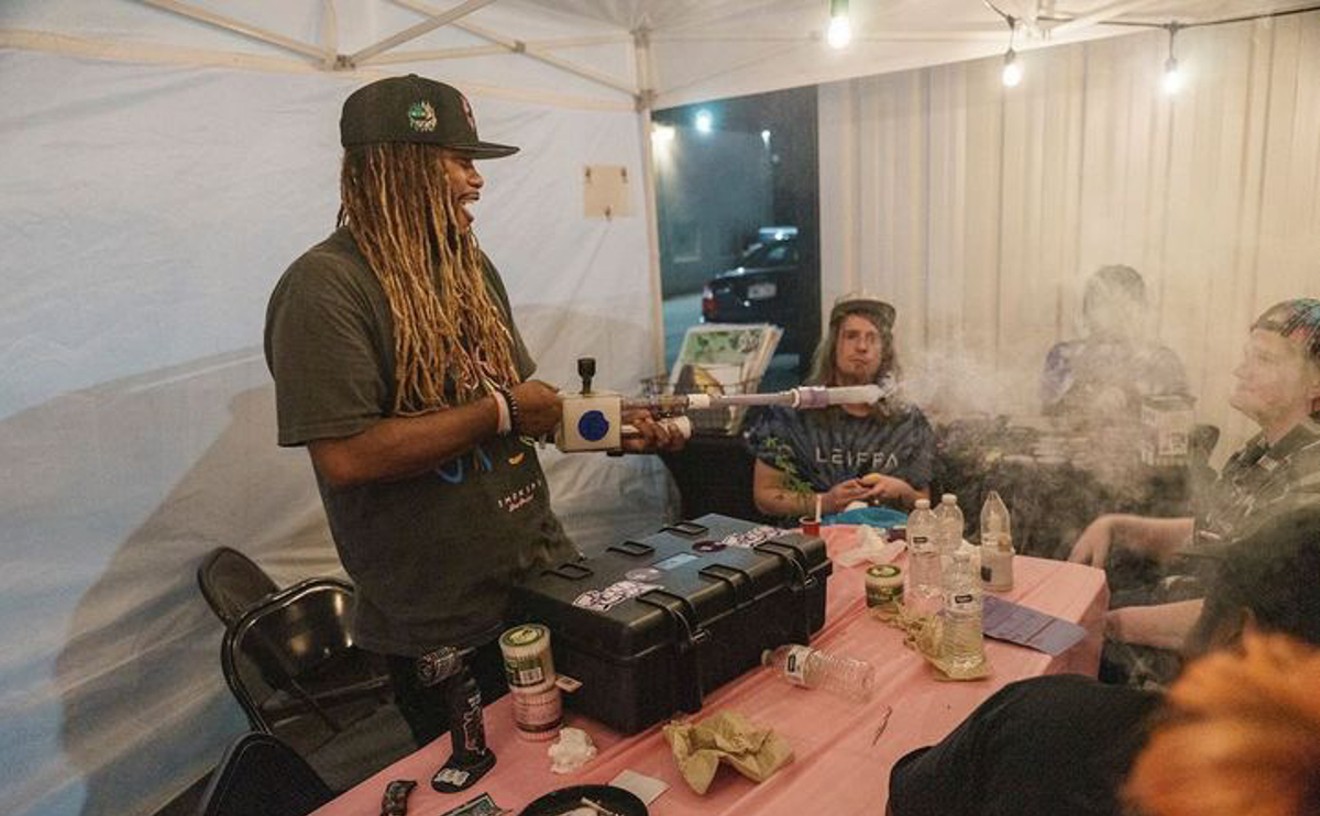An Obama-era guideline, the Cole memo was designed to give federal prosecutors clarity on when to take a hands-off approach in states that had legalized retail marijuana. But in Sessions's letters to Hickenlooper and other governors of states that have legalized commercialized pot, he reasserted the Department of Justice's power to enforce federal marijuana laws. Now SAM's report, published on the four-year anniversary of the Cole memo's release, says that the states haven't lived up to at least seven of the memo's eight guidelines, and calls on the Trump administration and Sessions to go after state-regulated marijuana industries.
"As Attorney General Sessions considers what actions to take on marijuana enforcement, we urge him to be smart on crime, not just tough on crime, and to continue to focus any federal resources wisely," SAM President Kevin Sabet says. "It’s time for states to stop playing politics and start ’fessing up to the real challenges they face.”
Here are the eight Cole memo guidelines that states with legal marijuana must follow in order to avoid federal intervention:
- Preventing distribution of marijuana to minors
- Preventing marijuana revenue from funding criminal enterprises, gangs or cartels
- Preventing the diversion of marijuana from states where it is legal under state law in some form to other states.
- Preventing state-authorized marijuana activity from being used as a cover or pretext for the trafficking of other illegal drugs or other illegal drug activity
- Preventing violence and the use of firearms in the cultivation and distributing of marijuana
- Preventing drugged driving and the exacerbation of other adverse public health consequences associated with marijuana use
- Preventing the growing of marijuana on public lands and the attendant public safety and environmental dangers posed by marijuana on public lands
- Preventing marijuana possession or use on federal property
"Before legalization, if a kid was caught with pot, parents wouldn't necessarily take them to the ER, because it was illegal and parents were scared," Downey says.
The report also cites data from the Rocky Mountain High Intensity Drug Trafficking Area Report, a study Sessions cited in his letter to Hickenlooper that's been widely criticized by media and public-health officials. "Every report needs to be looked at with its own limitations," Singer said of the RMHIDTA report in an interview earlier this month. "There are so many limitations to that study that it's important to look at it in its context. Take a look at our own validated Healthy Kids survey that's national recognized, and see what that shows."
On multiple pages, the RMHIDTA report noted that data from before 2012 is incomplete for studies on marijuana-related traffic fatalities and emergency-department visits. In a statement released earlier this month, Washington Governor Jay Inslee called the RMHIDTA report "incomplete and unreliable data that does not provide the most accurate snapshot."
The Healthy Kids Colorado Survey, conducted by the Colorado Department of Public Health and Environment, studied marijuana use by middle- and high-school students from 2009 to 2015. It found that the rate of use remained relatively unchanged during the time span, and that Colorado's youth currently use marijuana at a rate lower than the national average.
Still, the SAM report raises serious public-health and safety concerns about legal marijuana's rising popularity, which sat at 61 percent in Quinnipiac's most recent poll. But consumers aren't in SAM's line of fire...not yet, at least.
"Federal resources should target the big players in the marijuana industry," the report concludes. "Individual marijuana users should not be targeted or arrested, but large-scale marijuana businesses, several of which now boast of having raised over $100 million in capital, and their financial backers, should be a priority."













